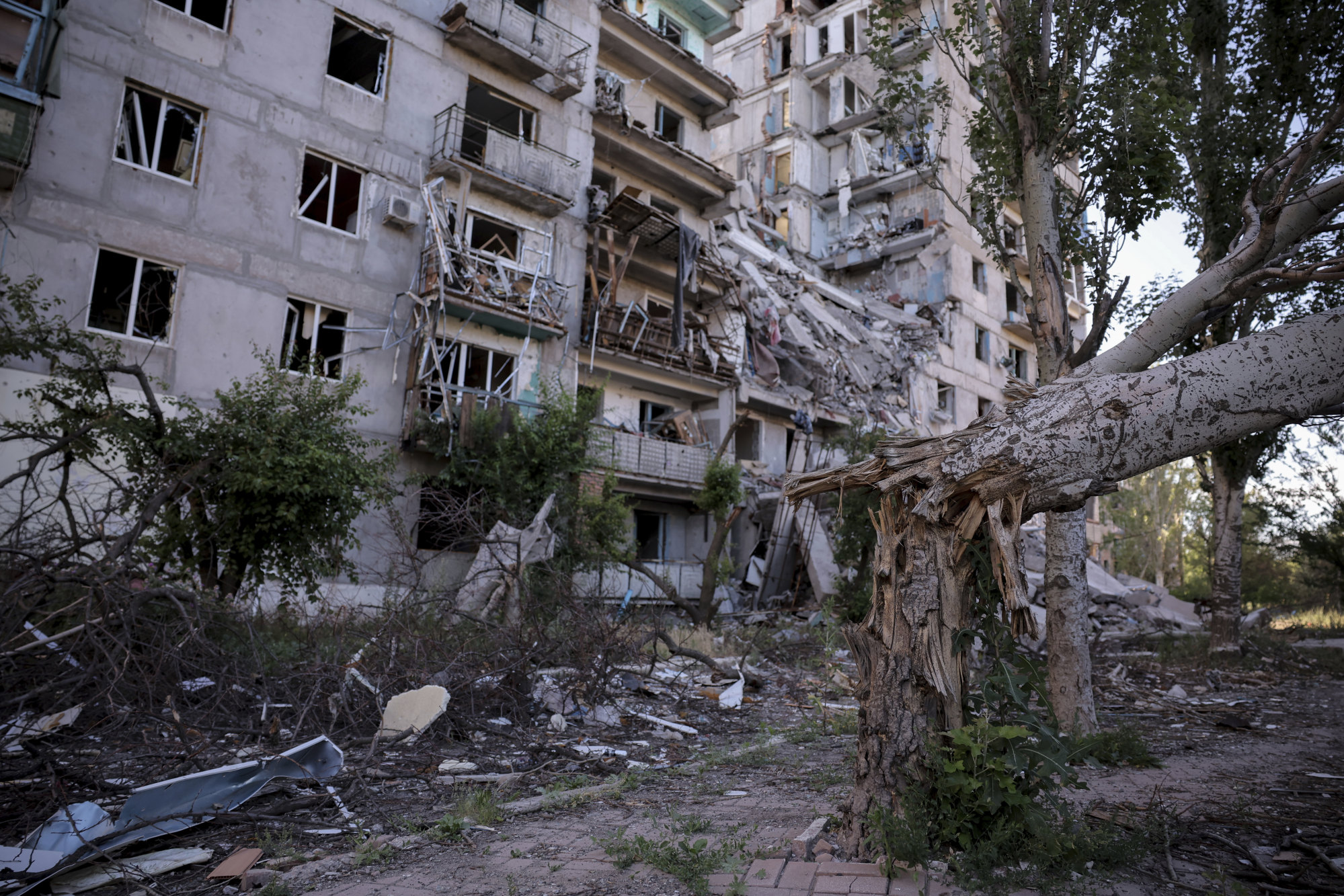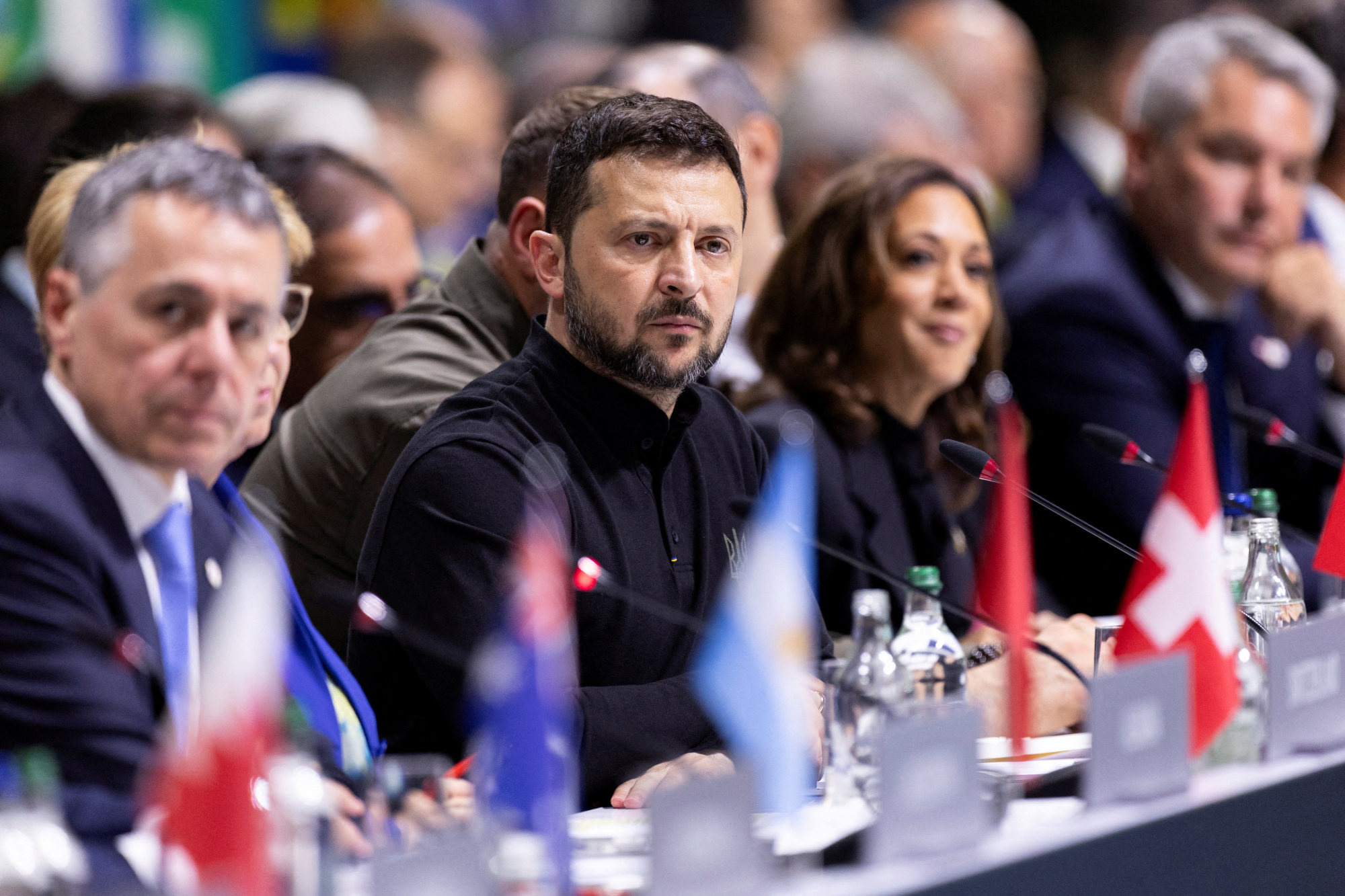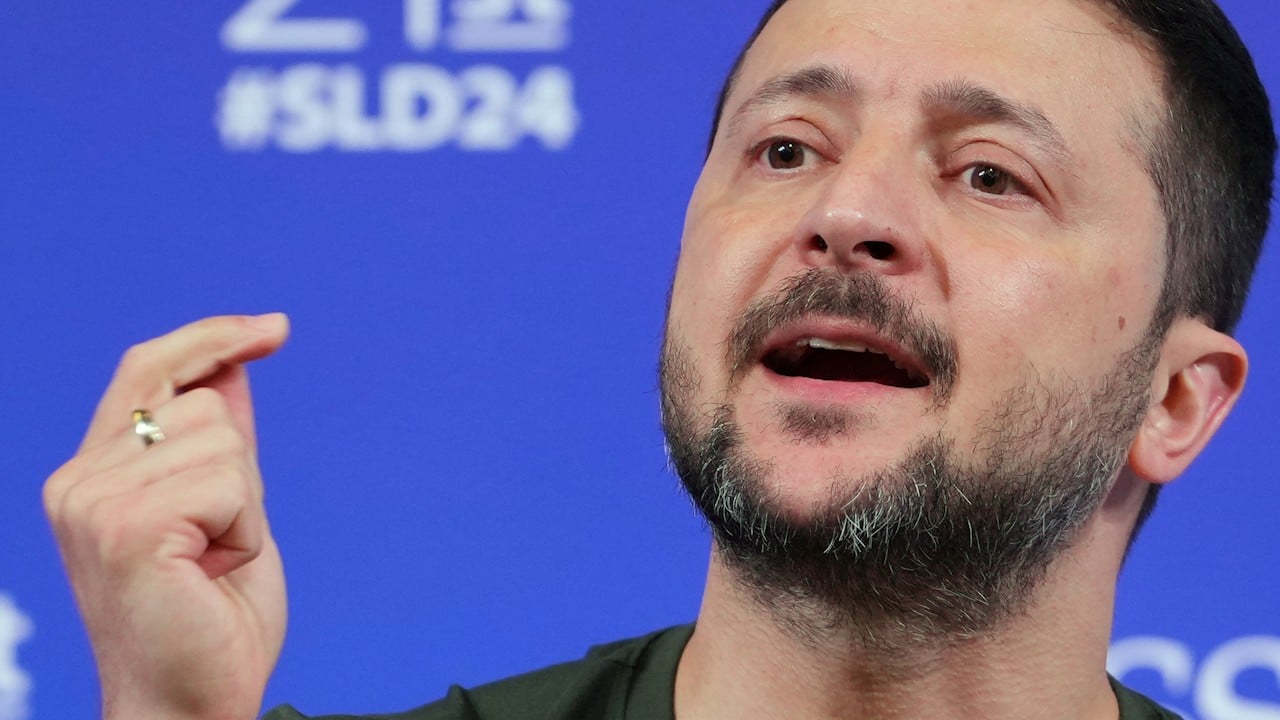The document also reaffirmed a commitment to the “territorial integrity of all states, including Ukraine”.
The declaration also urged a full exchange of prisoners of war and the return of deported children.

But not all attendees backed the document, with India, Saudi Arabia and the United Arab Emirates among those not included in a list of supporting states displayed on screens at the summit.
After world leaders stood together to offer their support on Saturday, Ukrainian President Volodymyr Zelensky voiced hope of garnering international agreement around a proposal to end the war that he could eventually present to Moscow.
The summit on Sunday focused on food security, avoiding a nuclear disaster and returning deported children from Russia as countries outlined building blocks towards ending the war.
The summit, snubbed by Russia and its ally China, came at a point when Ukraine is struggling on the battlefield, where it is outmanned and outgunned.
On Friday, Russian President Vladimir Putin demanded Kyiv’s effective surrender as a basis for peace talks.
Putin’s call for Ukraine to withdraw from the south and east of the country was widely dismissed at the summit.
But the Kremlin insisted on Sunday that Ukraine should “reflect” on Putin’s demands, citing the military situation on the ground.
“The current dynamic of the situation at the front shows us clearly that it’s continuing to worsen for the Ukrainians,” Kremlin spokesman Dmitry Peskov said.
“It’s probable that a politician who puts the interests of his country above his own and those of his masters would reflect on such a proposal.”
Russia on Sunday claimed its troops had captured Zagrine village in southern Ukraine, continuing its progress on the front line.
The Burgenstock talks were framed around areas of common ground between Zelensky’s 10-point peace plan presented in late 2022, and UN resolutions on the war that passed with widespread support.
The tight remit was an attempt to garner the broadest support by sticking firmly to topics covered by international law and the United Nations charter.

Countries split into three working groups on Sunday looking at nuclear safety and security, humanitarian issues, and food security and freedom of navigation on the Black Sea.
The session on humanitarian aspects focused on issues around prisoners of war, civil detainees, internees and the fate of missing persons.
It also discussed the repatriation of children taken from occupied Ukrainian territory into Russia.
Talks on food security examined the slump in agricultural production and exports, which has had a global ripple effect as Ukraine was one of the world’s breadbaskets before the war.
Talks looked at not only the destruction of fertile land through military operations but also the ongoing risks posed by mines and unexploded ordnance.
Artillery attacks on ships in the Black Sea have driven up the cost of maritime transport.
The nuclear safety group looked at the fragile situation surrounding the safety and security of Ukraine’s nuclear power plants, notably Zaporizhzhia, where all of the reactors have been shut down since mid-April.
Talks honed in on reducing the risk of an accident resulting from a malfunction or an attack on Ukraine’s nuclear facilities.

“When a just and sustainable peace comes, we will all be there to help Ukraine rebuild,” Canadian Prime Minister Justin Trudeau said in the final address from invited leaders.
“The people who lost their lives, the families destroyed, they won’t be able to bring them back. That’s the most painful consequence of war: the human suffering.
“This illegal war by Russia needs to end,” he said, while accepting that “it won’t be easy”.
Minds also turned to a potential second summit, at which Ukraine wants to present Russia with an internationally-agreed plan for peace.
Swiss President Viola Amherd said in her closing remarks: “One key question remains: how and when can Russia be included in the process?
“We have heard it in many of your statements: a lasting solution must involve both parties,” she said, while acknowledging that “the road ahead is long and challenging”.
Zelensky did not say whether he was prepared to engage with Putin directly in talks to end the conflict, though he has in the past ruled out direct talks with him.
“Russia should join this process because Russia is responsible for the starting of the process that’s called the war,” said Georgian President Salome Zourabichvili.


